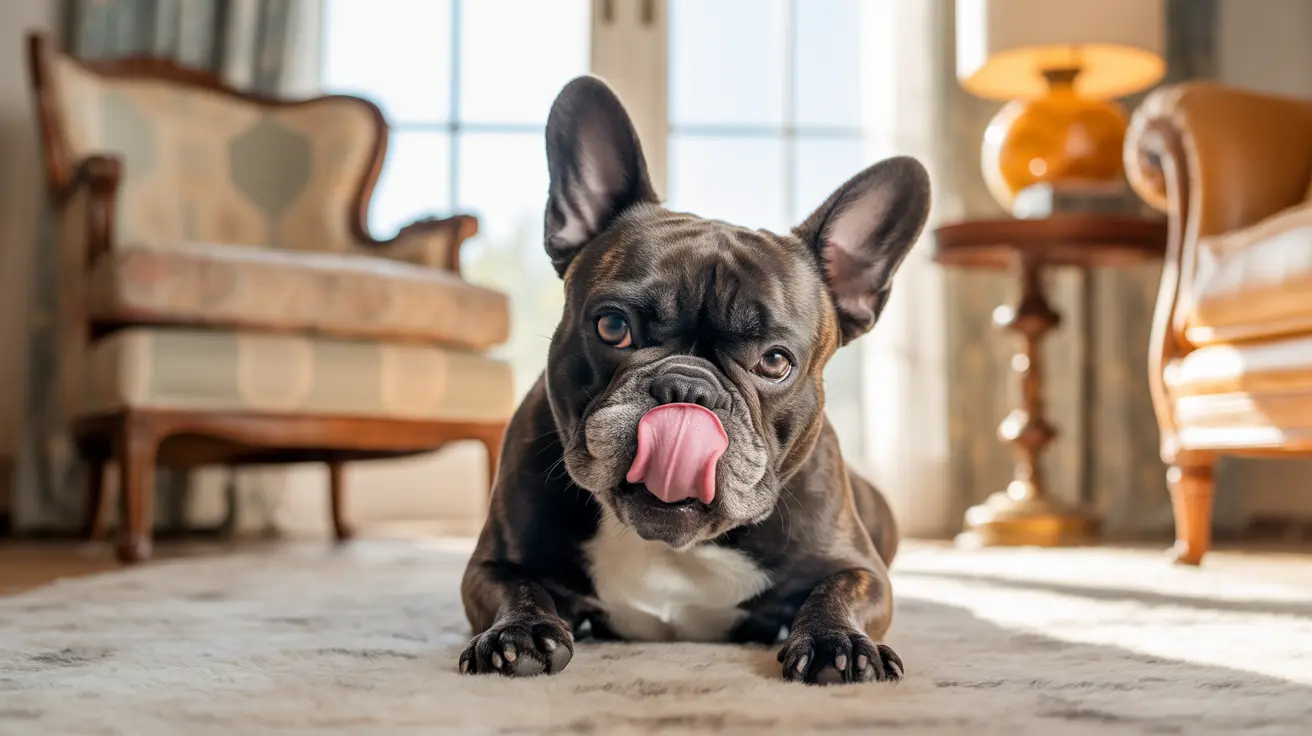If you've ever wondered "why does my dog lick so much," you're not alone. While licking is a natural canine behavior, excessive licking can signal underlying health issues or behavioral concerns that require attention. Understanding the root causes of your dog's excessive licking is crucial for ensuring their health and well-being.
In this comprehensive guide, we'll explore the various reasons behind excessive licking in dogs, identify warning signs, and provide practical solutions to address this common concern.
Common Medical Causes of Excessive Licking
Dogs often lick excessively due to medical conditions that cause discomfort or irritation. Understanding these underlying causes is essential for proper treatment:
Allergies and Skin Conditions
Allergic reactions to food, environmental factors, or contact irritants frequently trigger excessive licking. These allergies can cause intense itching and skin irritation, leading dogs to seek relief through persistent licking. Common allergens include certain proteins in food, pollen, dust mites, and cleaning products.
Infections and Parasites
Bacterial and fungal infections, particularly yeast infections, can cause significant skin discomfort. External parasites like fleas and mites also trigger intense itching and subsequent licking. These conditions often require immediate veterinary attention to prevent complications.
Behavioral Reasons for Excessive Licking
Not all excessive licking stems from medical issues. Sometimes, psychological or behavioral factors are at play:
Anxiety and Stress
Dogs may engage in excessive licking as a coping mechanism for anxiety or stress. This behavior can become compulsive, similar to how humans might bite their nails when nervous. Common triggers include separation anxiety, changes in routine, or environmental stressors.
Boredom and Attention-Seeking
Insufficient mental or physical stimulation can lead to excessive licking as a way to self-soothe or pass time. Some dogs learn that licking gets their owner's attention, inadvertently reinforcing the behavior.
When to Seek Veterinary Care
Certain signs indicate that your dog's licking requires professional attention:
- Raw or irritated skin in frequently licked areas
- Hair loss or bald patches
- Changes in behavior or eating habits
- Persistent licking of surfaces or objects
- Signs of pain or discomfort while licking
Prevention and Management Strategies
Once you've identified the cause of excessive licking, consider these management approaches:
Environmental Modifications
- Regular cleaning to reduce allergens
- Using hypoallergenic products
- Providing appropriate mental stimulation
- Maintaining a consistent routine
Behavioral Interventions
- Increased exercise and playtime
- Positive reinforcement training
- Interactive toys and puzzles
- Professional behavioral consultation when needed
Frequently Asked Questions
Why does my dog lick so much, and when should I be concerned?
While some licking is normal, excessive licking that disrupts daily activities, causes skin damage, or seems compulsive should raise concern. Watch for signs like hair loss, skin irritation, or behavioral changes that might indicate an underlying problem requiring veterinary attention.
How can I determine if my dog's excessive licking is due to allergies or skin infections?
Look for signs like redness, swelling, unusual odors, or changes in skin texture. Allergies often cause generalized itching, while infections might focus on specific areas. A veterinary examination can provide a definitive diagnosis through skin tests or cultures.
What are some common gastrointestinal issues that could cause my dog to lick excessively?
Nausea, acid reflux, and inflammatory bowel disease can trigger excessive licking. Dogs might lick surfaces, their lips, or their paws when experiencing digestive discomfort. Up to 60% of dogs with excessive licking behaviors may have underlying GI issues.
How can I stop my dog from licking surfaces and objects around the house?
Address potential anxiety or boredom through increased exercise and mental stimulation. Redirect the behavior to appropriate activities and consider consulting a veterinarian to rule out medical causes. Positive reinforcement training can help modify this behavior.
What are the best ways to address and treat excessive licking behaviors in dogs?
Treatment should target the underlying cause. This may include medical intervention for allergies or infections, behavioral modification for anxiety-related licking, or environmental changes to reduce stress. Work with your veterinarian to develop a comprehensive treatment plan.






